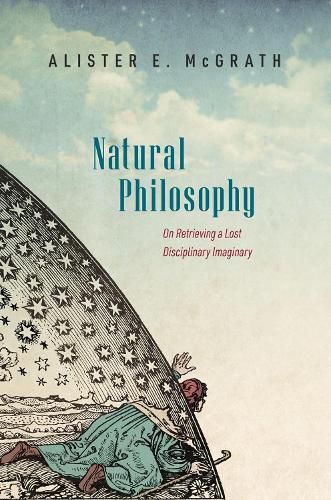Readings Newsletter
Become a Readings Member to make your shopping experience even easier.
Sign in or sign up for free!
You’re not far away from qualifying for FREE standard shipping within Australia
You’ve qualified for FREE standard shipping within Australia
The cart is loading…






Recovering the forgotten discipline of Natural Philosophy for the modern worldThis book argues for the retrieval of ‘natural philosophy’, a concept that faded into comparative obscurity as individual scientific disciplines became established and institutionalized. Natural philosophy was understood in the early modern period as a way of exploring the human relationship with the natural world, encompassing what would now be seen as the distinct disciplines of the natural sciences, mathematics, music, philosophy, and theology. The first part of the work represents a critical conversation with the tradition, identifying the essential characteristics of natural philosophy, particularly its emphasis on both learning about and learning from nature. After noting the factors which led to the disintegration of natural philosophy during the nineteenth century, the second part of the work sets out the reasons why natural philosophy should be retrieved, and a creative and innovative proposal for how this might be done. This draws on Karl Popper’s ‘Three Worlds’ and Mary Midgley’s notion of using multiple maps in bringing together the many aspects of the human encounter with the natural world. Such a retrieved or ‘re-imagined’ natural philosophy is able to encourage both human attentiveness and respectfulness towards Nature, while enfolding both the desire to understand the natural world, and the need to preserve the affective, imaginative, and aesthetic aspects of the human response to nature.
$9.00 standard shipping within Australia
FREE standard shipping within Australia for orders over $100.00
Express & International shipping calculated at checkout
Recovering the forgotten discipline of Natural Philosophy for the modern worldThis book argues for the retrieval of ‘natural philosophy’, a concept that faded into comparative obscurity as individual scientific disciplines became established and institutionalized. Natural philosophy was understood in the early modern period as a way of exploring the human relationship with the natural world, encompassing what would now be seen as the distinct disciplines of the natural sciences, mathematics, music, philosophy, and theology. The first part of the work represents a critical conversation with the tradition, identifying the essential characteristics of natural philosophy, particularly its emphasis on both learning about and learning from nature. After noting the factors which led to the disintegration of natural philosophy during the nineteenth century, the second part of the work sets out the reasons why natural philosophy should be retrieved, and a creative and innovative proposal for how this might be done. This draws on Karl Popper’s ‘Three Worlds’ and Mary Midgley’s notion of using multiple maps in bringing together the many aspects of the human encounter with the natural world. Such a retrieved or ‘re-imagined’ natural philosophy is able to encourage both human attentiveness and respectfulness towards Nature, while enfolding both the desire to understand the natural world, and the need to preserve the affective, imaginative, and aesthetic aspects of the human response to nature.